Regenerative Tissue Engineering and Medicine– From Biomimetic Scaffolds and Stem Cells to Whole Organs
Date: October 13, 2015 - Tuesday
Time: 15:00-18:00
Venue: Lecture Hall, 9 Floor, Inpatient Building, College of Stomatology, Guangxi Medical University
Abstract:
In this lecture I will first give a general introduction to the emerging field of Tissue Engineering Regenerative Medicine (TERM) discuss some exciting new developments in terms of clinical translation, specifically in the field of smart biomaterials, biomimetic scaffolds, clinical use of stem cells, whole organ engineering.
Given the rapid progress made in the decellularization/ recellularization of whole complex organs, such as the lung, the second half od this talk will focus on two issues related to Lung Regenerative Engineering: biomimetic scaffolds that might facilitate alveolar morphogenesis cell sourcing to populate these scaffolds. Specifically, I will describe recent studies by others us for lung tissue regenerative engineering, i.e., for generating distal lung tissue constructs in vitro, which might be useful as a potential treatment modality for numerous pediatric adult lung diseases and/or as high-fidelity tissue models for accelerated drug discovery toxicity testing.
I will first critically discuss use usefulness of natural synthetic biomaterials for generating nanoscale–diameter fibers composites that can be assembled into a variety of biomimetic scaffolds designed to emulate the bioactive, “intelligent” structure function of extracellular matrices. Examples for such scaffolds, taken form our own work that of others in the field will be used to discuss the usefulness potential of complex scaffolds for effectively manipulating biological processes, such as the induction of branching morphogenesis. I will emphasize the importance the spatial cues in smart bioactive scaffolds that can precisely control cellular development assembly required for optimal tissue repair regeneration.
The problem of cell sourcing for lung tissue engineering regenerative pulmonary medicine may be alleviated by directed differentiation organotypic functional assembly of stem progenitor cells. I will discuss strategies for generating vascularized 3-dimensional pulmonary constructs based on mixed populations of fetal murine pulmonary cells, permissive natural matrices biomaterials defined growth-factor containing culture media. Specifically, I will discuss some of the relevant signaling pathways matricellular molecules involved in the reciprocal induction of histiotypic alveolar vascular morphogenesis, which leads to the formation of sacculated “alveolar forming units”. I will also talk about the maintenance integration of these structures upon ectopic implantation in vivo.
Finally, I will describe our recent studies to modulate enhance the efficacy of embryonic induced pluripotent stem cell differentiation in vitro towards a pulmonary vascular lineages using several physicochemical biophysical approaches, such modifying ambient oxygen tension substrate viscoelastic properties.
Speaker Biography:
Prof. Peter I. Lelkes, PhD, is the Laura H. Carnell Professor Founding Chair of the Department of Bioengineeringin the College of Engineering at Temple University. Dr. Lelkes is also the Inaugural Director of the Institute for Regenerative Medicine Engineering (TIME) at Temple University’s School of Medicine Professor for Cancer Biology at the Fox Chase Cancer Center. Prior to that he was from 2000-2011the Calhoun Chair Professor in the School of Biomedical Engineering, Science Health Systems at Drexel University in Philadelphia with adjunct appointments in the Departments of Mechanical Engineering Mechanics (College of Engineering) Pathology, Biochemistry Surgery (College of Medicine). Currently Prof. Lelkes directs a broad interdisciplinary program in regenerative tissue engineering, focusing on nanotechnology-based biomaterials soft tissue engineering, employing developmental biological principles to enhance the tissue-specific differentiation of embryonic adult stem cells towards pulmonary, cardiac neuronal lineages. Dr. Lelkes has organized several Keystone conferences, published more than 200 peer-reviewed papers, authored several books more than 50 book chaptersmade more than 500 presentations nationally internationally.
Dr. Lelkes has received numerous honors awards, nationally internationally. Amongst them a ForchheimerVisiting Fellowship at the Hebrew University, Jerusalem, Honorary Professorships at the University of Applied Sciences Aachen, Germany the Changchun Institute of Polymer Chemistry Physics, Chinese Academy of Sciences, a Distinguished Visiting Fellowship of the Royal Academy of Engineering at Imperial College, London, UK. In 2011 he was inducted as a Fellow of the AIMBE (American Institute for Medical Biological Engineering) received the 2012 Ben Franklin KeyAward from IEEE, the Institute of Electrical Electronics Engineers.Dr. Lelkes’ basic translational research has been support by federal (NIH, NSF, NASA, DOE) state funding agencies (NTI PA Dept. of Commerce, Tobacco Settlement Funds) private Foundations, including the Craig H. Neilsen Foundation the Coulter Foundation. Dr. Lelkes has been the team leader for tissue engineering at the Nanotechnology Institute of Southeastern Pennsylvania (NTI) is the Co-Director of PATRIC, the Pennsylvania Advanced Textile Research Innovation Center, focusing on BioNanoTextiles Stem Cell Biology.
Dr. Lelkes has received numerous honors awards, nationally internationally. Amongst them a ForchheimerVisiting Fellowship at the Hebrew University, Jerusalem, Honorary Professorships at the University of Applied Sciences Aachen, Germany the Changchun Institute of Polymer Chemistry Physics, Chinese Academy of Sciences, a Distinguished Visiting Fellowship of the Royal Academy of Engineering at Imperial College, London, UK. In 2011 he was inducted as a Fellow of the AIMBE (American Institute for Medical Biological Engineering) received the 2012 Ben Franklin KeyAward from IEEE, the Institute of Electrical Electronics Engineers.
In his “free-time” Dr. Lelkes is an active chamber musician likes to hike in the mountains.
(Edited by Chen Xiawei)


